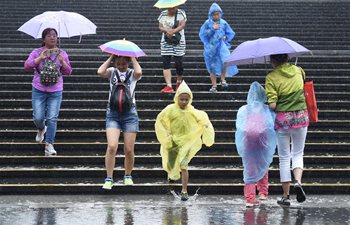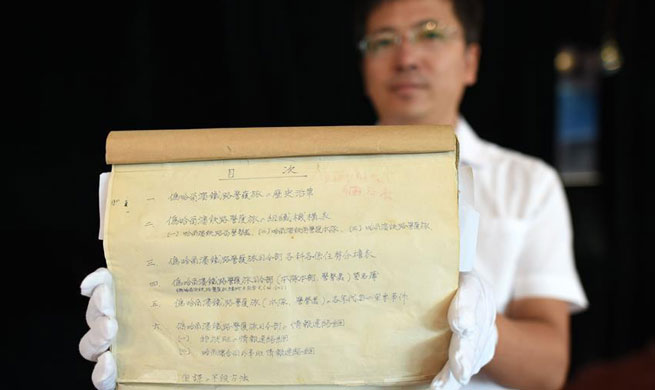WELLINGTON, Aug. 18 (Xinhua) -- A study released on Friday examined the acceptance of infant immunization in New Zealand, saying immunizations are "more likely to be delayed" if mothers-to-be receive information from family, friends and media that discourages immunization.
The new research findings from the University of Auckland, published in the journal Pediatrics, said for national immunization programs to yield their maximal health benefits requires children to receive scheduled vaccinations on time.
It is particularly important for the primary infant immunization series where delay increases the risk of hospital admission due to vaccine-preventable disease, said the study's senior author Cameron Grant.
"Pregnant women receive information that supports or opposes immunization," Grant said, adding that this research set out to identify the sources of such information, and whether receipt of that information has any influence on the timing of children's immunizations.
More than 6,000 pregnant women were asked what information they had received about infant immunization in the course of face-to-face interviews conducted as part of the wider "Growing Up in New Zealand" study.
Fewer than half of the mothers interviewed recalled having received information on immunization, with 30 percent receiving only encouraging information, while 9 percent receiving both encouraging and discouraging advice, and 5 percent receiving only discouraging information.
Of those women who did not recall receiving any information during pregnancy, 70 percent of their infants were immunized on time, which compares with 57 percent of infants of women who received discouraging information, and 61 percent of infants of women who received both encouraging and discouraging information.
The main sources of immunization information identified by the women were health care providers, family and friends, and media. Most said they received only encouraging information from health care providers, while the main sources of discouraging information were family and friends and media.

















